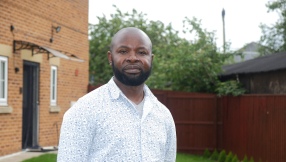
Care Not Killing, a group which campaigned strongly against Parliament’s decision to vote in favour of assisted suicide, has urged supporters not to give up hope that the bill can be defeated and has provided advice on how members of the public can have their voices heard.
Although the assisted suicide bill passed the House of Commons last week, it must still make it through the House of Lords. The Lords has the power to delay legislation for up to a year and constitutionally is expected to revise and amend any proposals sent by the lower house.
Parliamentary convention usually dictates the Lords take no serious steps to block government legislation that was promised in an election manifesto. However, this principle, known as the Salisbury Convention, does not apply here because legalising assisted suicide was not in the Labour manifesto and it is a private member’s bill, rather than explicitly government backed legislation.
Labour is itself divided on the issue, with Keir Starmer voting for the change, but his deputy, Angela Rayner, and Wes Streeting, who as Health Secretary will have to implement it, voting against. Just over half the cabinet voted in favour of assisted suicide, with the remainder voting against or abstaining.
The House of Lords is expected to have its first significant debate and vote on the bill in the middle of September.
Gordon Macdonald, CEO of Care Not Killing has suggested campaigners contact peers, although noted this was not always easy, as they do not have constituencies and in many cases do not even have emails.
Macdonald said research is the key. A peer who was the former MP of a person’s constituency or who may be a patron of a local hospice or charity, or perhaps another local connection may be a good starting point.
Then, he added, it is important to find out their existing position on assisted suicide. If they are someone who has clearly taken a side one way or another, there is likely little point in lobbying them. Care Not Killing emphasised contacting only those who are open to being convinced.
"The Leadbeater Bill looks no less dangerous and dysfunctional in the wake of its Commons Third Reading, and more and more peers are concerned that some MPs voted ‘aye’ in the hope that the Lords would resolve outstanding issues," he said.
"As Diane Abbott said after Friday’s vote: 'One thing I have learnt from some years in politics, victory or defeat are rarely final. So you keep on fighting.'
"Let’s."













